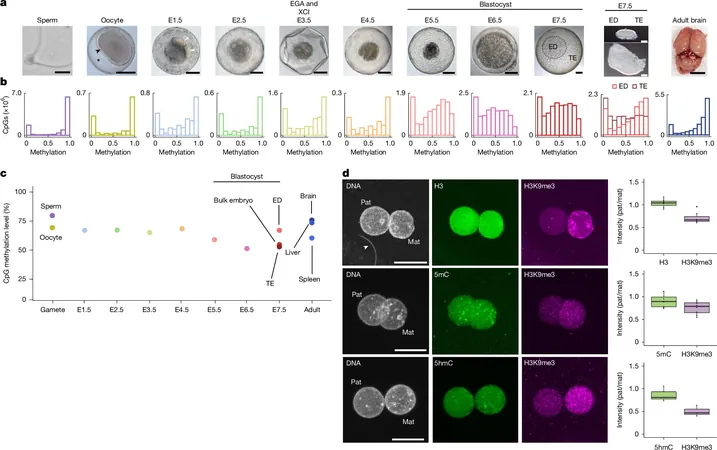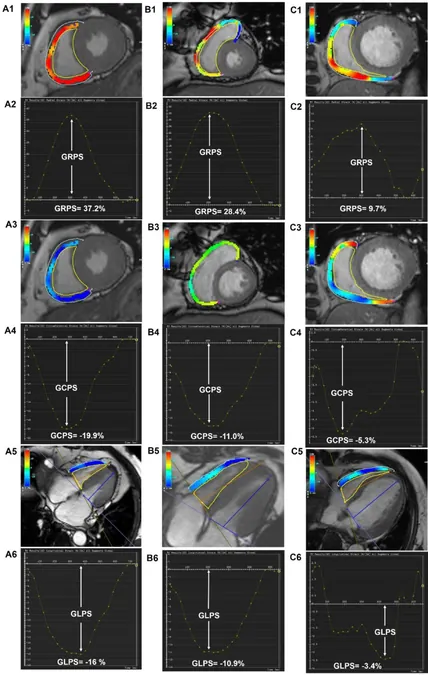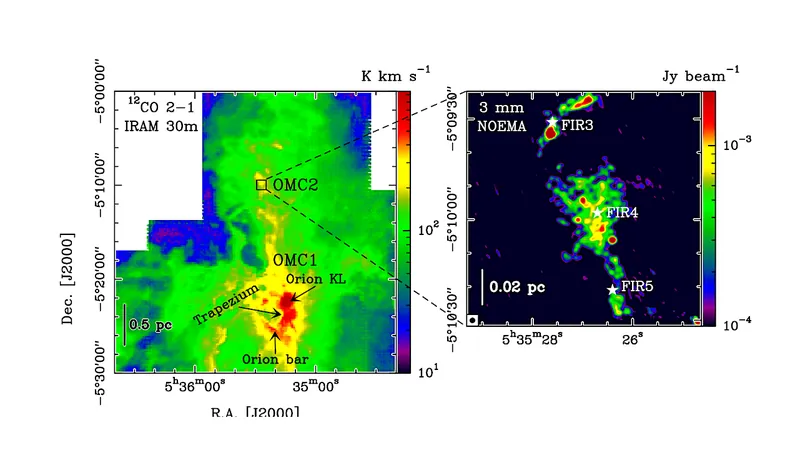
Discovering the Secrets of Marsupial Embryos: A Game Changer in Mammalian Development
2025-05-14
Author: Mei
Unlocking the Mysteries of Early Life
A groundbreaking study from the Francis Crick Institute has shed light on a pivotal mystery in mammalian development: why embryos erase a crucial epigenetic mark during their earliest stages. This discovery hints at a fascinating evolutionary adaptation that may be key to placenta formation.
The Epigenetic Game Plan
Epigenetics is like the notes scribbled on a recipe card; they guide when genes are activated or silenced without altering the fundamental DNA structure itself. One of the most significant epigenetic alterations across mammals—DNA methylation—is cleared from embryos right before implantation. Yet, the underlying purpose of this dramatic cleansing remained elusive.
A Unique Perspective from Marsupials
In an innovative twist, the researchers turned their attention to marsupials, notably the opossum, which split from placental mammals (eutherians) around 160 million years ago. By examining how these embryos develop more gradually through distinct stages, the team aimed to pinpoint the exact role of DNA demethylation.
A Surprising Find: No Full Wipe in Opossums
The research revealed unexpected results: unlike their placental counterparts, opossum embryos do not experience a complete erasure of methylation. Instead, they retain these epigenetic marks during early development, with their loss occurring much later and mostly limited to the trophectoderm—the tissue that forms the marsupial placenta. This indicates that the widespread erasure seen in eutherians is not a necessary step for all mammals.
Why This Matters: The Evolution of the Placenta
This revelation suggests that the elimination of DNA methylation may have specifically evolved to facilitate placental development. Bryony Leeke, a key contributor to the study, highlighted that this selective removal allows for the expression of transposons—often called 'jumping genes'—which could play a crucial role in how genes are expressed in the developing placenta, one of the fastest-evolving organs in mammals.
Marsupials: Nature's Unique Experiments
Principal Group Leader James Turner expressed surprise at the findings, noting that this unique aspect of marsupial development opens up new avenues for understanding mammalian biology. Marsupials may seem like the odd ones out, but their distinct characteristics provide invaluable insights into the development of more common mammalian species, including humans.
A New Dawn for Embryonic Research
This research not only marks a significant step forward in our understanding of embryonic development but also establishes the opossum as a vital model for future studies. As scientists delve deeper into these evolutionary adaptations, the mysteries of our own biological heritage might soon be unraveled.




 Brasil (PT)
Brasil (PT)
 Canada (EN)
Canada (EN)
 Chile (ES)
Chile (ES)
 Česko (CS)
Česko (CS)
 대한민국 (KO)
대한민국 (KO)
 España (ES)
España (ES)
 France (FR)
France (FR)
 Hong Kong (EN)
Hong Kong (EN)
 Italia (IT)
Italia (IT)
 日本 (JA)
日本 (JA)
 Magyarország (HU)
Magyarország (HU)
 Norge (NO)
Norge (NO)
 Polska (PL)
Polska (PL)
 Schweiz (DE)
Schweiz (DE)
 Singapore (EN)
Singapore (EN)
 Sverige (SV)
Sverige (SV)
 Suomi (FI)
Suomi (FI)
 Türkiye (TR)
Türkiye (TR)
 الإمارات العربية المتحدة (AR)
الإمارات العربية المتحدة (AR)